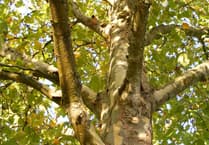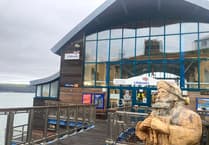The Welsh Government has launched a public consultation today on proposals to give local authorities the powers to introduce a ‘visitor levy’.
The levy would be a small charge paid by people staying overnight in accommodation in Wales.
Each local authority in Wales will have the power to decide if they want to introduce a visitor levy, and the money raised will be re-invested in local areas to support local tourism.
This could be investment in keeping the beaches and pavements clean, through to maintaining local parks, toilets and footpaths.
More than 40 countries and holiday destinations around the world have introduced a form of visitor levy, including Greece, France, Amsterdam, Barcelona, and California.
A discretionary visitor levy for local authorities in Wales would represent a very small proportion of a visitor’s overall spend.
The extensive consultation seeks views on who should pay a levy, who would be charging and collecting the levy, how the levy could be best applied and how revenues from the tax could be allocated.
The careful process of translating proposals for a visitor levy into legislation, and then into delivery and implementation will span a number of years and will be subject to approval by the Senedd.
Rebecca Evans, Minister for Finance and Local Government, said: “These proposals are about preparing for the future.
“Our intention is to bring about a sense of shared responsibility between residents and visitors, to protect, and invest in, our local areas. By asking visitors – whether they have travelled from within Wales or from further afield – to make a small contribution towards maintaining and enhancing the place they are visiting, we will encourage a more sustainable approach for tourism.”
Proposals for a visitor levy have been progressed through Welsh Government’s Co-operation agreement with Plaid Cymru.
Plaid Cymru Designated Member Cefin Campbell said: “While Wales may be the first place in the UK to introduce such a levy, we do not believe it will be the last – as we have seen recently, a visitor levy may soon be introduced in Edinburgh so Wales is not alone.
“We want to continue to see a thriving tourism industry in Wales. It is vital we have sustainable, responsible tourism that works both for visitors and for the communities they are visiting.
“Should local authorities decide to implement a visitor levy, it could make a real difference in communities across Wales to help develop and protect local services and infrastructure.
“We welcome all views in understanding what would work well for Wales and encourage everyone to contribute to the consultation.”
Councillor Andrew Morgan, WLGA Leader said: “Wales is known the world over as a top destination, but it’s important to ensure that tourism is sustainable and has the right investment so that it can be enjoyed in the future.
“Under these proposals, councils would have the discretion to raise the levy to ensure their communities and the tourism infrastructure is properly funded.
“Levies are a common feature in tourist destinations internationally and the forthcoming consultation is an important opportunity for residents and businesses to have their say on the way forward.”
However, Welsh Conservatives warn the average family face a £75 charge under Labour and Plaid’s new ‘tourism tax’ plan.
Commenting on the news, Welsh Conservative Shadow Tourism Minister, Tom Giffard MS said: “The Labour Government, despite near-unanimous opposition from the Welsh tourism industry, are pressing ahead with their so-called visitor levy.
“This tourism tax could add a cost of £75 to a family holiday in Wales during a cost-of-living crisis.
“This policy will put livelihoods at risk as 1-in-7 jobs – 200,000 rely on the tourism industry.
“What’s more, there has been no guarantee that this tax would see any improvement to tourism offers in local communities, and the proceeds are instead likely to get sucked up into council coffers.
“The decision to press ahead with this policy is nothing short of arrogance from the Labour Party, a symptom of their perpetual rule here in Wales.”




